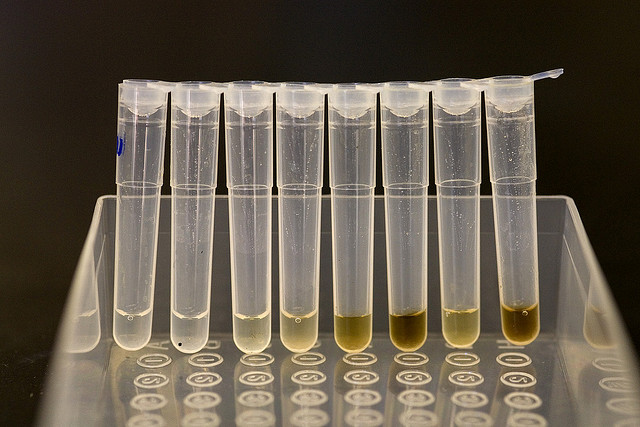
The US Supreme Court has taken up its next patent case, which may well lead to another decision sharply overturning a ruling by the nation's top patent court.
Here's how the case made it to the high court: Life Technologies Corporation, part of Thermo Fisher Scientific, manufactures a genetic testing kit in the United Kingdom. The company sells this product worldwide. Life Tech made one element of the kit, called a Taq polymerase, in the United States and then shipped it to the UK to combine with the larger product.
In 2010, Promega sued Life Technologies for patent infringement and won a jury verdict awarding $52 million. Promega is a California biotech company that says its patent covers Life Technologies’ genetic testing kit. The judge overturned the decision after trial, however, finding merely shipping the polymerase from the US wasn't enough to warrant such a result. Promega took its case to the Federal Circuit, which hears all US patent appeals. A split Federal Circuit panel sided with Promega, reinstating the $52 million verdict. Today, the Supreme Court said they will review the case at the request (PDF) of Life Technologies.
The US Solicitor General advised the high court to take up the issue in May, when that office filed a brief (PDF) at the justices' request. The Solicitor General's office argued that the ruling was potentially harmful to business, since it "subjects domestic exporters to the threat of liability for supplying a single staple article into the global stream of commerce."Patent owners can get damages under US patent law when "a substantial portion of the components of a patented invention" are supplied in a way that "actively induces" patent infringement. The basic idea is that if a new gadget infringes a patent, an infringer can't get around the patent by making the device's various parts in the US and then sending them abroad for assembly.
But in the government's opinion, applying that law in the case of these genetic testing kits is inappropriate, pushing US patent law onto foreign shores.
"In a five-component invention like the genetic testing kit at issue here, the single most important component might constitute a substantial portion of the invention, but it cannot constitute a substantial portion of the components," the Solicitor General wrote. The Federal Circuit ruling "is inconsistent with the presumption against extraterritoriality."
Predictions of what the Supreme Court would do are risky bets, but since the court could have left the status quo intact by doing nothing, there's a good chance that the Federal Circuit ruling will be overturned, as the Solicitor General requested. In the last decade, patent rulings at the Supreme Court have generally been favorable to defendants and have often overturned Federal Circuit decisions.
Promega originally asserted five patents against Life Technologies, but four of those were invalidated during the litigation. The remaining allegedly infringed patent is RE 37,984, entitled "process for analyzing length polymorphisms in DNA regions."
Life Technologies asked the Supreme Court to consider the issue of whether the party could "actively induce" itself to infringe a patent or whether that requires the involvement of a third party. The Supreme Court declined to take up that issue and will focus solely on the matter of whether creating a single component can lead to infringement.
The Supreme Court took up three patent cases in its last term, two of which were linked cases. Both of those decisions came down earlier this month. The first of those opinions made it easier for patent owners to get enhanced damages, while the second one upheld how the Patent Office conducts "inter partes review" proceedings.
Life Technologies Corporation was created in 2008 when Applied Biosciences and Invitrogen Corporation merged in a $6.7 billion deal. The company was acquired in 2014 by Thermo Fisher Scientific, which stopped marketing "Life Technologies" as its own brand last year.
reader comments
45